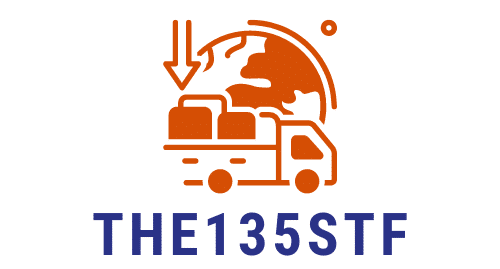As we hover on the brink of the Fourth Industrial Revolution, there’s no denying the incredible growth of smart home technology. Today, you can operate almost every device in your home remotely using a smartphone or a voice command. This is not only a luxury but also an energy-efficient solution, making life simpler for consumers. This article delves into how UK home appliance manufacturers can leverage the global smart market to gain a competitive advantage.
Understanding the Smart Home Market
The smart home market is a burgeoning industry, with its growth driven by the increasing consumer preference for automated devices. According to a recent report by Markets and Markets, the global smart home market size will grow to USD 135.3 billion by 2025, from USD 78.3 billion in 2020. This indicates a promising potential for UK manufacturers to penetrate and establish a stronghold in this segment.
A lire également : Explore white label saas solutions to boost your business
The surge in demand for smart home appliances stems from their ability to offer real-time data monitoring and control of energy usage, thereby reducing waste and saving money for consumers. Moreover, with the rise of the Internet of Things (IoT), smart devices can now communicate and interact with each other, offering a seamless and integrated experience for consumers.
The Role of Data in Customizing Home Appliances
In this age of digital revolution, data is king. It holds the key to understanding consumer preferences, habits, and needs. Home appliance manufacturers can leverage this data to design and develop products that meet the specific needs and expectations of their consumers.
A lire également : What Are the Steps for UK Biotech Startups to Commercialize Research Findings?
For instance, smart kitchen appliances can gather data relating to a consumer’s cooking habits, food preferences, and meal schedules. This information can be utilized to customize the appliance’s features, such as automatic cooking modes, meal planning and preparation, and even grocery shopping reminders.
Moreover, with the advent of artificial intelligence (AI) and machine learning, manufacturers can analyze this data to predict future behavior and trends. This predictive analysis can guide product development and innovation, ensuring that the products remain relevant and competitive in the fast-evolving market.
Enhancing Energy Efficiency through Smart Technology
Energy efficiency is one of the key selling points of smart home appliances. In a world increasingly conscious about climate change and sustainable living, consumers are looking for appliances that minimize energy consumption and reduce their carbon footprint.
Smart technology enables consumers to monitor and control their appliances’ energy usage remotely. They can schedule operations during off-peak hours, adjust settings to optimize energy use, and even turn off appliances that are not in use.
For manufacturers, integrating such energy-saving features can enhance the appeal and marketability of their products. It not only caters to the rising consumer demand for eco-friendly appliances but also aligns with the global commitment to sustainability and energy conservation.
Capitalizing on the Global Consumer Demand
The global consumer demand for smart home appliances is on an upward trajectory, spurred by the increasing consumer awareness and adoption of IoT and smart technologies. As per the Statista report, North America holds the largest share of the global smart home market, followed by Europe and Asia-Pacific.
UK manufacturers have the opportunity to cater to this widespread demand by offering innovative and technologically advanced products. They can also leverage strategic partnerships, mergers, and acquisitions to expand their reach and tap into new markets.
In conclusion, the integration of smart technology in home appliances holds immense potential for UK manufacturers. By understanding the market dynamics, leveraging data-driven insights, enhancing energy efficiency, and capitalizing on the global consumer demand, they can gain a competitive edge and claim a significant share of the burgeoning smart home market.
The Future of Smart Home Appliances
Looking ahead, the future of the smart home appliances market seems promising, with the advent of cutting-edge technologies like AI, 5G, and blockchain. These technologies will foster innovation and create a new wave of smart home devices that are more efficient, secure, and user-friendly.
In the near future, we can expect to see appliances that are capable of self-diagnosis and maintenance, interactive voice and facial recognition features, and even personalized user experiences based on AI-powered predictive analysis.
As we move towards this exciting future, UK manufacturers must stay ahead of the curve by continually investing in research and development, understanding evolving consumer needs, and adopting the latest technological innovations.
Embracing Home Automation Opportunities
Home automation is an integral part of the smart home concept. It involves the automatic control of various household activities, such as lighting, heating, security, and entertainment systems, using smart appliances and devices. By adopting this technology, UK manufacturers can offer a more comprehensive and immersive smart home experience to their consumers.
Take the case of smart kitchen appliances. They can be integrated with other devices to create an efficient and self-regulating kitchen system. For instance, a smart refrigerator can send a notification to the smart oven about the meal to be prepared, which in turn can preheat itself at the right time and temperature. Similarly, a smart coffee maker can be programmed to brew coffee at the same time every morning, or when it detects the user is about to wake up, based on data from a smart wristband.
The possibilities are endless with home automation. It’s all about creating a connected and efficient home environment that adapts to the consumer’s lifestyle. This level of personalization and convenience can significantly enhance the appeal of UK manufactured appliances in the global smart home market.
As per the free sample report by Grand View Research, the global home automation market is projected to reach USD 209.4 billion by 2027, growing at a compound annual growth rate (CAGR) of 8.4% from 2020 to 2027. This indicates the vast market potential for UK manufacturers that can successfully integrate home automation into their products.
Driving Market Growth through Supply Chain Optimization
For UK home appliance manufacturers, optimizing the supply chain is crucial to meet the rising demand for smart home appliances and accelerate market growth. The supply chain encompasses everything from sourcing raw materials and components, manufacturing and assembly, to distribution and customer service.
One way to optimize the supply chain is by adopting technologies such as IoT, AI, and blockchain. These technologies can enhance visibility across the supply chain, improve forecasting accuracy, streamline operations, and reduce costs.
For example, IoT sensors can track the movement of goods in real-time, enabling manufacturers to monitor inventory levels and manage logistics more efficiently. AI can analyze historical and real-time data to predict demand patterns and optimize production schedules. Blockchain can improve traceability and transparency, ensuring the authenticity and quality of components.
Moreover, manufacturers can leverage strategic partnerships with suppliers, logistics providers, and retailers to improve supply chain efficiency and agility. This can help them respond swiftly to market trends, minimize lead times, reduce stock-outs and overstocks, and enhance customer satisfaction.
In addition to this, manufacturers should also focus on sustainability and ethical sourcing in their supply chain operations. This not only helps in reducing environmental impact but also enhances their brand reputation and marketability in the eyes of increasingly conscious consumers.
Conclusion
The integration of smart technology into home appliances presents an exciting opportunity for UK manufacturers to gain a competitive edge in the global market. By understanding the market dynamics, leveraging data-driven insights, embracing home automation, enhancing energy efficiency, driving market growth through supply chain optimization, and meeting the global consumer demand, they can make significant strides in the burgeoning smart home market.
Looking ahead, the advent of emerging technologies such as AI, 5G, and blockchain, along with the growing consumer demand for smart and eco-friendly appliances, signals a promising future for the smart home appliances market. To thrive in this dynamic and competitive landscape, UK manufacturers must stay agile, innovate continuously, and remain customer-centric in their approach.
The future of smart home appliances is not just about making homes smarter, but also about making lives simpler, more efficient, and sustainable. As the Fourth Industrial Revolution unfolds, the onus is on UK manufacturers to lead the charge in transforming houses into smart homes, and in turn, shaping the future of living.






